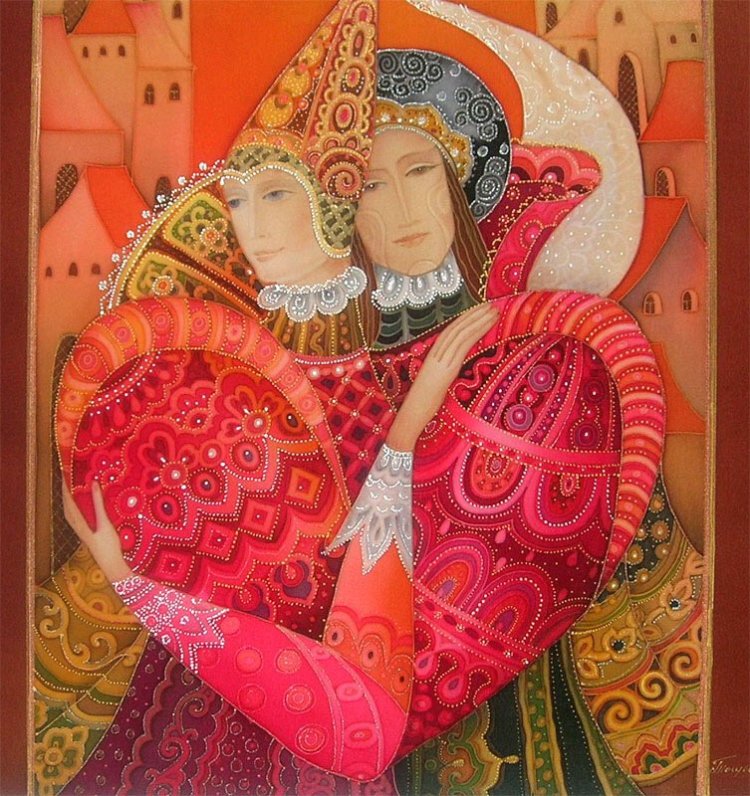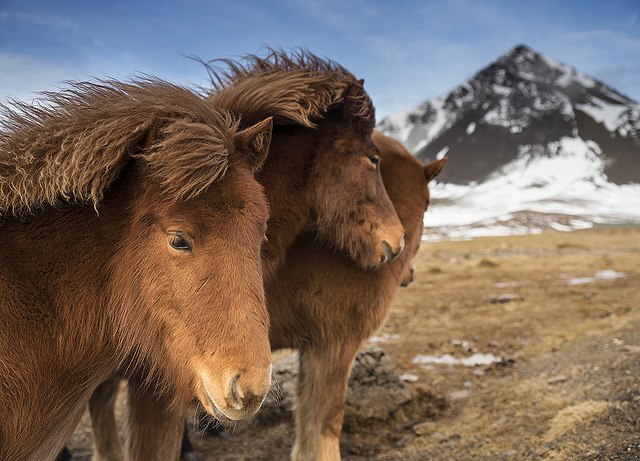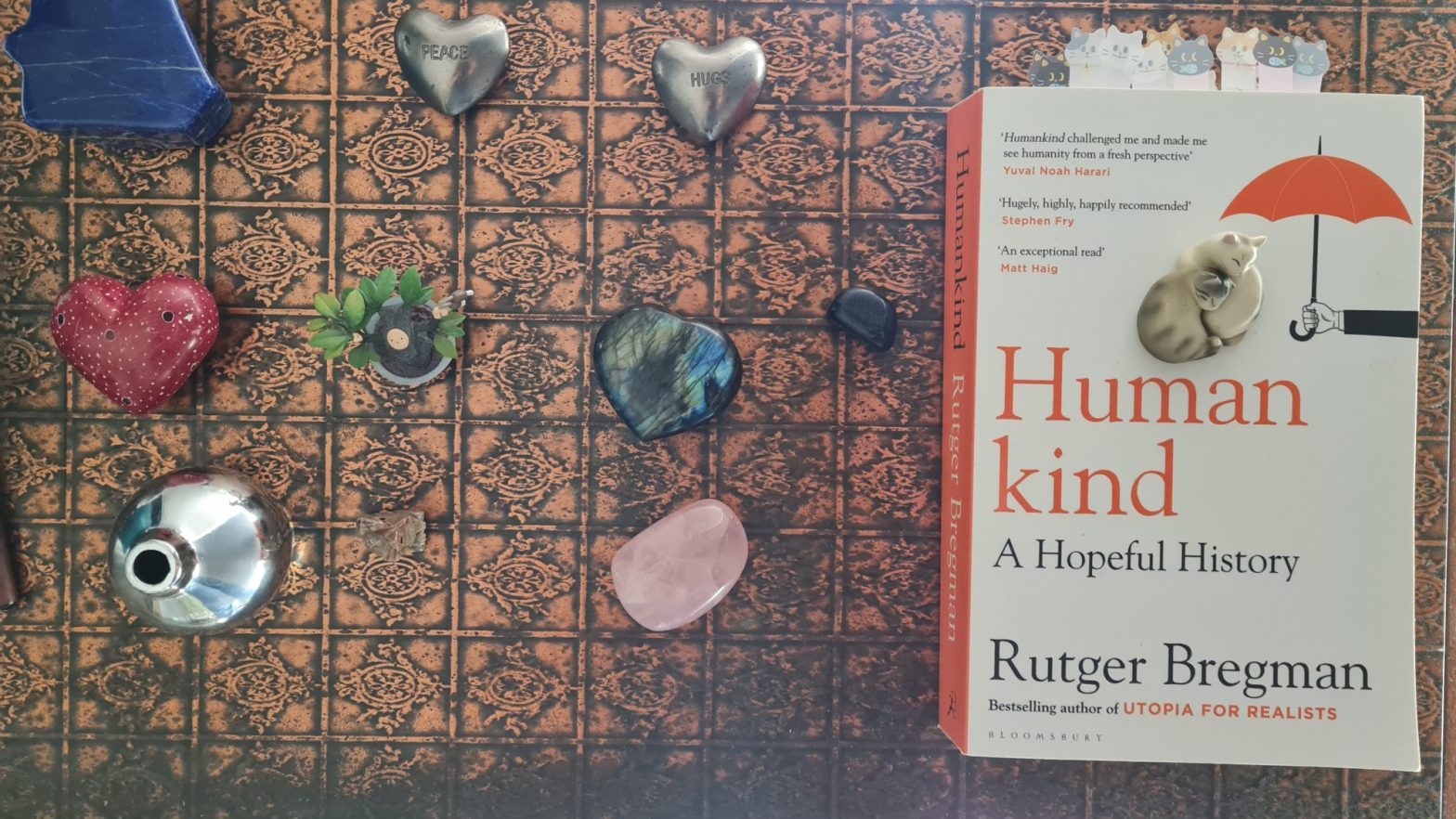Publisher: Bloomsbury Publishing
Genre: Non-Fiction, Psychology, Spirituality, Anthropology, Culture, Politics, History
Rating: 🌟🌟🌟🌟🌟
I was initially skeptical about this book. A hopeful history of humanity? During the time of COVID, climate change and mass animal extinction? However, there was a kernel of hope within me that really wanted for this concept to be true. This book delivers exactly what it says it does on the cover, it painstakingly uncovers the potential that humans have for creating love and beauty, instead of war and destruction.
Yet this is not an overly schmaltzy narrative with false optimism. Bregman writes in a breezy, easy to read and entertaining way and dissects some heavy topics such as psychological torture experiments and high profile murder cases, to reach new conclusions about the humans who were culpable in these scenarios.
Hobbes (bleak humanity) versus Rousseau (hopeful humanity
Bregman breaks down history of human civilisation into two different kinds of philosophy one from Thomas Hobbes (bleak and dark) and the other from Jean-Jacques Rousseau (much more optimistic).

Thomas Hobbes
“Back in the old days, we were free. we could do whatever we pleased and the consequences were horrific. Human life in that state of nature was in Hobbes’ words ‘solitary, poor, nasty, brutal and short’. The reason he theorised was simple. Human beings are driven by fear. Fear of the other. Fear of war. We long for safety and have a restless desire to seek after power, that only ceases in death. Yet not to worry, anarchy can be tamed and order restored. We all just have to agree to relinquish our liberty.”
Humankind: A Hopeful History by Rutger Bregman
Jean Jacques Rousseau
“The first man, who, after enclosing a piece of land, took it into his head to say ‘This is mine’ and found people simple enough to believe him, was the true founder of civil society. How many crimes. How many wars, how many murders, how many misfortunes and horrors would that man have saved the human species, who pulling up the stakes or filling up the ditches should have cried to his fellows. Be sure not to listen to this imposter. You are lost, if you forget that the fruits of the earth belong equally to us all, and the earth itself to nobody”
Humankind: A Hopeful History by Rutger Bregman
Many ‘realistic’ writers of Rousseau’s time considered him to be a naive romantic. He rejected the idea of the march of civilisation being a good thing. He believed that once humans went from being hunter gatherers to being settled in place and farming, that this is when things really began to fall apart. According to research cited by Bregman, becoming pastoralists meant the end of protofeminism, the beginnings of the patriarchy and the beginnings of infectious diseases spread by farmed animals along with STDs.
Humankind: A Hopeful History by Rutger Bregman

Stanley Milgram’s experiments
These experiments in the 70’s got people to inflict pain on others based on the strong insistence of researchers. Later they were told that their involvement in the experiment would help science and they felt great relief about that. The findings of a repeated version of this experiment showed:
If you push people hard enough, if you poke, prod, bait and manipulate, many of us are indeed capable of doing evil. The road to hell is paved with good intentions. But evil doesn’t live just below the surface. It takes immense effort to draw it out. And most importantly, evil has to be disguised as doing good.
Humankind: A Hopeful History by Rutger Bregman

This book is absolutely fascinating and has immense depth while still being very enjoyable and entertaining to read. I heartily recommend this book to you if you feel anxious about the uncertainty of our world, or if you simply are feeling doubtful about the capacity of humanity to overcome the evil of our world. Or even if you are completely cynical in that regard. This is a refreshing look at how humans behave in situations of evil and chaos, and the good news is…we aren’t as bad as we think we are!
Survival of the shameless
For millennia, shaming was a sure way to tame our leaders. It can still work today. Shame is more effective than regulations or censure. People who feel shame regulate themselves. In the telltale way that that they flush when they realise they are the subject of gossip.
A society without shame would be hell.
Unfortunately there are people who are incapable of feeling shame. Whether because they are drugged on power or are a minority born with sociopathological traits. Such individuals would not last long in nomadic tribes. They’d be cast out of the group and left to die alone. But in our modern sprawling organisations, sociopaths actually seem to be one step ahead on the career ladder. 4-8% of CEOs have sociopathy, compared to 1% in general population.
Shamelessness can advantageous
Politicians not hindered by shame can do outrageous things. Could you tell a lie and then tell another without missing a beat? Most people would be consumed by shame. But the shameless couldn’t care less. In this type of world, it’s not the friendliest or most empathic leaders who rise to the top, but their opposites. In this world, it’s the survival of the shameless.
Negative spirals
What if negative ideas around human nature are actually a form of pluralistic ignorance? Could our fear that most people are out to maximise their own gain be born of the assumption that that’s what other’s think? And then we adopt a more cynical view, when, deep down most of us are yearning for a life of more kindness and solidarity? Like hatred, trust can also be contagious. Trust often begins when someone dares to go against the flow. Someone who is initially seen as unrealistic and naive.
The commons
On a day-to-day basis we share more with each other than we keep to ourselves. This communal basis is a vital mainstay of capitalism. Consider how many companies are utterly dependent on the generosity of their customers. Facebook would be worth much less without the pictures and videos that millions of users share for free. Why don’t we make much more of this? Perhaps the things we share don’t seem that remarkable.
Nobody has to print flyers explaining that it’s nice for people to take a stroll in the park or to breathe in clean air. Nor do we think of that clean air or clean water as belonging to someone. It’s only when someone decides to rent out the air or water, appropriate the beach that we think – didn’t this belong to all of us?
They can include just about anything. From a community garden to a website, from a language to a lake. So long as it’s shared and democratically managed by a community of people. Some commons are a part of nature’s bounty, such as drinking water. Others are human inventions like Palm Oil Detectives or Wikipedia.
For millennia, the commons have constituted almost everything on earth. In 1990, economist Elinor Ostom wrote the watershed book ‘Governing the Commons’ and went on to win a Nobel Prize in Economics. She formulated design principles for a successful commons.
8 Principles for Managing a Commons
1. Define clear group boundaries.
2. Match rules governing use of common goods to local needs and conditions.
3. Ensure that those affected by the rules can participate in modifying the rules.
4. Make sure the rule-making rights of community members are respected by outside authorities.
5. Develop a system, carried out by community members, for monitoring members’ behavior.
6. Use graduated sanctions for rule violators.
7. Provide accessible, low-cost means for dispute resolution.
8. Build responsibility for governing the common resource in nested tiers from the lowest level up to the entire interconnected system.
—
Ten rules to live by according to Rutger Bregman
1. When in doubt, assume the best
When in doubt about another person’s intentions, what should you do? It’s most realistic to assume the best, to give them the benefit of the doubt. But what if someone scams you? Psychologist Maria Konnikova says it’s better to account for the fact that you will occasionally be cheated. That’s a small price to pay for a luxury of trusting people.
2. Think in win-win scenarios
The wonderful fact is, we live in a world where doing good also feels good. We like food because without food we’d starve. We like sex because without sex we’d go extinct. We like helping because without each other we’d wither away. Sadly. untold companies, schools and other institutions are still organised around a myth, that it’s in our nature to be in competition with each other. In truth, this works precisely the other way around. The best deals are those where everybody wins.
3. Ask more questions
Start by asking questions and letting citizens have their say in a participatory democracy. To let workers dictate the terms of their own employment and KPIs. To let children dictate their own learning pathways. Its flip of the usual maxim: ‘Do not do unto others and they do unto you – as their tastes may be different.
4. Temper your empathy, train your compassion
Empathy is exhausting and saps all of your energy. Unlike empathy, compassion does not sap our energy because it’s more controlled, remote and constructive. It’s not about sharing another person’s distress, but it does help you to recognise it and then act.
5. Try to understand the other, even if you don’t get where they are coming from
Seeing where somewhere else is coming from doesn’t mean you need to see eye to eye. You can understand the mindset of a fascist or terrorist. Understanding the other on a rational level is a muscle you can train.
Where we need this capacity the most is to suppress our desire to be nice. Sometimes when we see someone being treated unfairly we keep silent in order to avoid being disagreeable. People with the nerve to get up on their soap box on social occasions. Who raise unpleasant subjects that make you uneasy. Cherish these people because they are the key to progress.
6. Love your own as others love their own
Humans are limited creatures. We care more about those who are like us, who share the same language or appearance or background. Why do we care more about people who seem like us? Evil does its work from a distance. Distance lets us rage at stranger on the internet. Distance helps soldiers bypass their aversion to violence. Distance has enabled the most horrifying crimes in history, from slavery to the holocaust.
But choose the path of compassion and you realise how little separates you from that stranger. Compassion takes you beyond yourself until those near and dear are more or less significant than the rest of the world.
7. Avoid the news
One of the biggest sources of distance is the news. It offers a skewed view of the world. The news and also social media zooms in on all of the bad apples and has a negativity bias. Because bad behaviour grabs our attention, it’s what generates the most clicks and where we click the advertising dollars follow. This has turned social media into systems that amplify our worst qualities. Read in depth news and steer clear of TV news, switch off the screen and go and meet someone in person.
8 . Don’t punch Nazis
Instead of catering to or amplifying hatred, meet it with kindness and compassion.
9. Come out of the closet, don’t be ashamed to do good
If you assume most people are selfish, then any good deed is suspect. However if you conceal your good works by playing it down then you reinforce people’s cynical ideas about human nature and you can’t serve as an example for others. This doesn’t mean flaunting your good deeds. Kindness is catching. And it’s so contagious that it even infects people who see it from afar.
You are the light of the world. A city set on the hill cannot be hidden. Nor do people light a lamp and put it under a basket, but on a stand and it gives light to all of the house. In the same way, let your light shine before others, so that they may see your good works.
Jesus Christ
10. Be realistic
Let’s change the meaning of the word ‘realism’. Isn’t it telling that in modern usage the realist has become synonymous with the cynic. In truth, it’s the cynic who’s out of touch. So be realistic. Be courageous. Do good in broad daylight and don’t be ashamed of your generosity. You may be dismissed as gullible and naive at first. But remember, what’s naive today may be commonsense tomorrow. It’s time for a new realism. It’s time for a new view of humankind.


It’s time for a new view of humankind. Well said.
LikeLiked by 1 person
Yes it really is, thank you for stopping by Mousumi
LikeLike
It’s my pleasure!
LikeLike